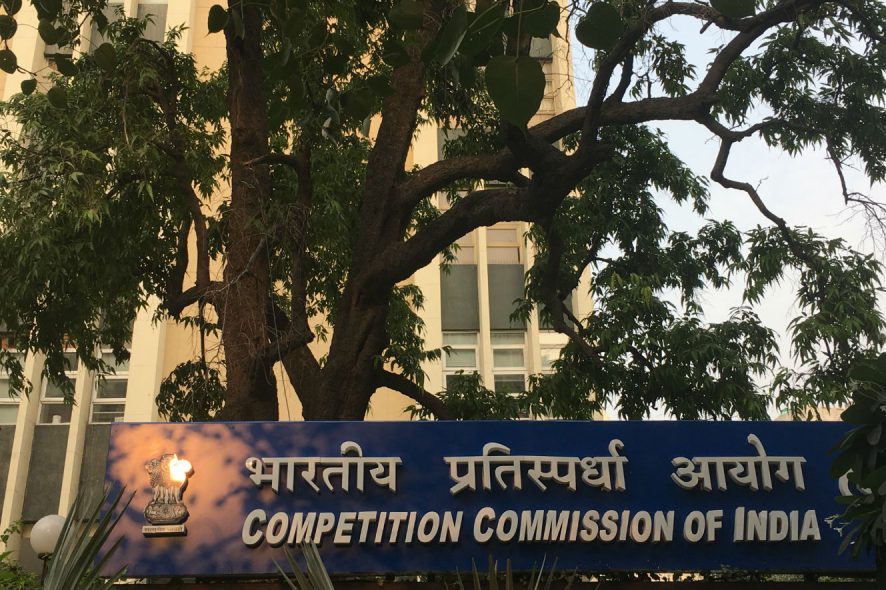Competition Commission of India (CCI): Coram of Ashok Kumar Gupta (Chairperson) and Sangeeta Verma and Bhagwant Singh Bishnoi (Members) ordered an investigation by the Director-General against Google in view of prima facie contravention of provisions of Competition Act.
Informants filed the instant case under Section 19(1)(a) of the Competition Act against Google LLC, Google India Private Limited, Xiaomi Technology India Pvt. Ltd. & TCL India Holdings Pvt. Ltd. alleging contravention of various provisions of Sections 3 and 4 of the Act. OPs to be referred to as ‘Google’.
Informants stated that they were the consumers of Android-based smartphones, television devices and alleged that Google was guilty of anti-competitive practices which violate Section 4 with Section 32 of the Act.
It was alleged that Google imposed several restrictions, as summarized below, upon smart TV and smart mobile device OEMs by virtue of the agreements entered into with them which tantamount to abuse of its dominant position by Google, in terms of various provisions of Section 4 of the Act.
Analysis
It was noted that Google enters into two agreements with Android TV licensees i.e. Television App Distribution Agreement (TADA) and Android Compatibility Commitment (ACC).
Google makes AOSP available to any third parties under an open-source license, however, the Android Open Source Project license does not grant OEMs, the right to distribute Google’s proprietary apps such as Play Store, YouTube, etc. referred to as Google Applications in TADA. The AOSP license further does not grant Original Equipment Manufacturers (OEMs), the right to use the Android logo and other Android-related trademarks. In order to obtain those rights, Google requires OEMs to sign an optional, non-exclusive agreement, i.e. TADA. Further, TADA requires the OEMs to be in compliance with a valid and effective ACC.
Commission prima facie opined that by making pre-installation of Google’s proprietary apps conditional upon signing of ACC for all android devices manufactured/distributed/marketed by device manufacturers, Google has reduced the ability and incentive of device manufacturers to develop and sell devices operating on alternative versions of Android and thereby limited technical or scientific development relating to goods or services to the prejudice of consumers in contravention of Section 4(2)(b) of the Act.
ACC prevents OEMs from manufacturing/ distributing/ selling any other device which operates on a competing forked Android operating system.
Therefore, the dominance of Google in the relevant markets and pronounced network effects, by virtue of the stated restriction, developers of such forked Android operating system are denied market access resulting in violation of Section 4(2)(c) of the Act.
Further, Commission prima facie opined that obligations which appear to be applicable across all the devices manufactured by OEMs are akin to making a conclusion of contracts subject to acceptance by other parties of supplementary obligations which, by their nature or according to commercial usage, have no connection with the subject of such contracts and thus, violative of provisions of Section 4(2)(d) of the Act.
In relation to the mandatory preinstallation of all the Google Applications under TADA, it is observed that the device manufacturers who sign this agreement cannot pick and choose from the Google Applications for preinstallation. In essence, this entails compulsory tying of ‘must have’ Google apps, which is in contravention of Section 4(2)(a)(i) of the Act.
Elaborating more on the above aspect, Commission stated that Google prima facie leveraged dominance in Play Store in contravention of Section 4(2)(e) of the Act.
Commission directed the Director-General (‘DG’) to cause an investigation to be made into the matter under the provisions of Section 26(1) of the Act and the same to be completed within a period of 60 days.
As per the Coram, a case was made out for directing an investigation by the DG.[Kshitiz Arya v. Google LLC, 2021 SCC OnLine CCI 33, decided on 22-06-2021]






